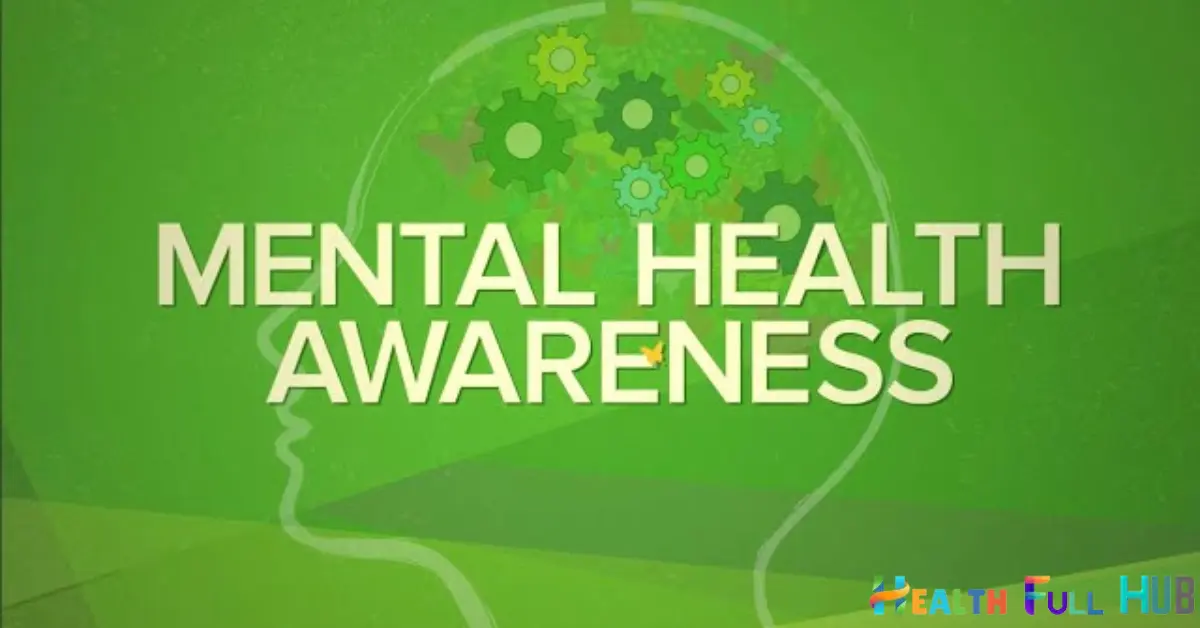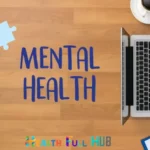In current age, Mental Health Awareness knowledge has developed as a important focus for things, communities, and institutions general. Increased knowledge not only helps those laboring with insane energy challenges find the support they need, but it likewise everything to destigmatize these issues, promoting a more inclusive and understanding surroundings. This item delves into the importance of insane health knowledge, average challenges confronted, habits to support mental prosperity, and money for those down and out help.
What is Mental Health?

It influences how we remember, feel, and act and plays a vital act in guiding stress, asserting friendships, and making decisions. Mental fitness is not motionless; it can change depending on determinants like existence occurrences, work ecosystems, genetics, and individual practices.
The Importance of Mental Health Awareness
Awareness is the first step to breaking the stigma surrounding mental health issues. Many people avoid discussing their mental health for fear of judgment, misunderstanding, or social consequences. However, raising awareness promotes empathy and understanding, allowing individuals to feel safe discussing their challenges and seeking help when necessary.
The importance of mental health awareness also extends to recognizing early signs of mental health conditions. Early intervention can often lead to better outcomes, as it enables individuals to seek treatment before issues escalate.
Common Mental Health Challenges

Mental health disorders come in various forms, each with unique characteristics and challenges.
Anxiety Disorders
They manifest as extraordinary, continuous fear or worry about miscellaneous facets of daily growth. Types of worry disorders contain generalized tension disorder (GAD), anxiety attack, and social tension disorder. Symptoms can involve expeditious heartbeat, overdone sweaty, restlessness, and illogical fears that impact ordinary ventures.
Depression
Depression is from extended impressions of depression, despair, and a deficit of interest lethargy. It can influence an individual’s strength levels, demand, sleep patterns, and aggregation, making even simple tasks disputing.
Bipolar Disorder
Bipolar disorder is apparent by extreme attitude swings, containing periods of depression and adventures of madness. Mania includes impressions of raised energy, hyperactivity, and unruliness. The varying atmospheres can upset daily functioning and private connections, making it lively for those impressed to sustain appropriate care and support.
Obsessive-Compulsive Disorder (OCD)
OCD involves unwanted, intrusive thoughts (obsessions) and repetitive behaviors or rituals (compulsions) performed to relieve distress. Common symptoms include excessive hand-washing, checking locks or appliances repeatedly, or persistent fears about harm coming to oneself or loved ones.
Post-Traumatic Stress Disorder (PTSD)
PTSD develops after experiencing or witnessing a traumatic event, such as an accident, natural disaster, or personal assault. Symptoms include flashbacks, nightmares, and severe anxiety, often accompanied by emotional numbness or avoidance behaviors.
Recognizing the Signs of Mental Health Issues
Recognizing the signs of mental health issues is essential in providing timely support. Here are some warning signs that someone may be experiencing a mental health challenge:
- Changes in Sleep Patterns: Difficulty falling asleep, oversleeping, or experiencing frequent nightmares.
- Withdrawal from Social Activities: Avoiding family gatherings, isolating from friends, or losing interest in hobbies.
- Mood Swings: Intense emotional highs and lows, irritability, or frequent outbursts.
- Difficulty Concentrating: Trouble focusing on tasks, forgetfulness, or poor performance at work or school.
- Feelings of Guilt or Worthlessness: Constant self-blame or feeling like a burden to others.
Early intervention through therapy, medication, or lifestyle changes can often make a significant difference in an individual’s recovery journey.
How to Support Mental Health
Support for mental health comes from both personal efforts and community resources.
Practice Self-Care
Self-care is essential for maintaining mental health. It involves activities that reduce stress, boost mood, and provide time for personal reflection. Popular self-care activities include:
- Physical Exercise: Regular exercise has been shown to reduce symptoms of anxiety and depression by releasing endorphins.
- Adequate Sleep: A healthy sleep schedule supports both mental and physical health by aiding in mood regulation.
- Healthy Eating: Balanced nutrition is crucial, as deficiencies in certain nutrients can worsen mental health symptoms.
Build Strong Relationships
Positive relationships with friends, family, and colleagues provide a support system, which is vital for mental well-being. Sharing feelings, discussing challenges, and enjoying social activities with loved ones can create a sense of belonging and provide emotional support.
Set Realistic Goals
Setting achievable goals can increase motivation and provide a sense of accomplishment. Start with small, manageable objectives and gradually work towards larger goals. Celebrate each step, as these small wins can boost confidence and improve mood.
Seek Professional Help
Mental health professionals, including therapists, psychologists, and psychiatrists, provide invaluable support for those facing mental health challenges. Therapy options include cognitive-behavioral therapy (CBT), which helps individuals reframe negative thoughts, and medication, which can address specific symptoms.
Engage in Positive Coping Mechanisms
Positive coping mechanisms like journaling, spending time in nature, or engaging in hobbies can serve as healthy outlets for stress. Conversely, it’s essential to avoid negative coping mechanisms, such as substance abuse or self-harm, as they can lead to further complications.
Reducing the Stigma Around Mental Health
Stigma remains one of the largest barriers to mental health awareness and treatment. Society often associates mental health issues with weakness or inadequacy, preventing individuals from seeking the help they need.
- Challenge Stereotypes: Refrain from using derogatory language or making assumptions about people with mental health issues. Challenge others who perpetuate these stereotypes.
- Share Personal Stories: If you feel comfortable, sharing personal experiences with mental health challenges can empower others to seek help and show them that they are not alone.
- Support Mental Health Advocacy: Advocacy organizations work to increase mental health awareness, improve policies, and provide resources for those in need.
Resources for Mental Health Support
Many resources are available for those seeking mental health support, including:
- Helplines: Numerous helplines offer free, confidential support. Examples include the National Suicide Prevention Lifeline and local crisis hotlines.
- Therapy and Counseling Services: Many communities have low-cost or free counseling services. Teletherapy is also an option for those unable to access in-person care.
- Online Support Groups: Forums and support groups provide a safe space for individuals to share experiences and receive support from others with similar challenges.
- Mental Health Apps: Apps like Headspace, Calm, and BetterHelp offer resources for mindfulness, meditation, and therapy access.
The Role of Employers in Mental Health Awareness
Workplaces play a significant role in mental health awareness. Creating a supportive work environment can make a positive impact on employees’ well-being. Employers can support mental health by:
- Encouraging Work-Life Balance: Avoiding excessive work hours and offering flexible schedules can reduce stress and improve morale.
- Offering Mental Health Benefits: Providing access to counseling services, mental health days, and stress management programs can support employees in managing their mental health.
- Creating a Safe Space for Discussion: Encourage open dialogue about mental health, ensuring employees feel safe discussing their challenges without fear of judgment or repercussions.
Conclusion
Mental energy knowledge is essential for building charitable, auxiliary societies place individuals feel authorized to inquire help and consider their occurrences. By understanding mental fitness challenges, advancing self-care, lowering shame, and providing resources for support, we can conceive a planet place mental strength is treasured as very as tangible health. Remember, insane energy is an continuous journey, and skilled is no shame in seeking support. Through knowledge and agreement, we can support a more active, more inclusive association for all.
FAQs on Mental Health Awareness
What is mental health awareness, and why is it important?
Mental health awareness involves educating people about mental health, mental illnesses, and the importance of mental well-being. It is important because it helps reduce stigma, promotes understanding and empathy, and encourages people to seek help without fear of judgment. Raising awareness can also lead to early intervention, better support systems, and a healthier society overall.
How can I tell if I need to seek help for my mental health?
If you’re experiencing prolonged sadness, anxiety, mood swings, difficulty sleeping, trouble concentrating, or a lack of interest in daily activities, it may be time to seek support. Mental health professionals can help assess your symptoms and provide strategies for managing them.



